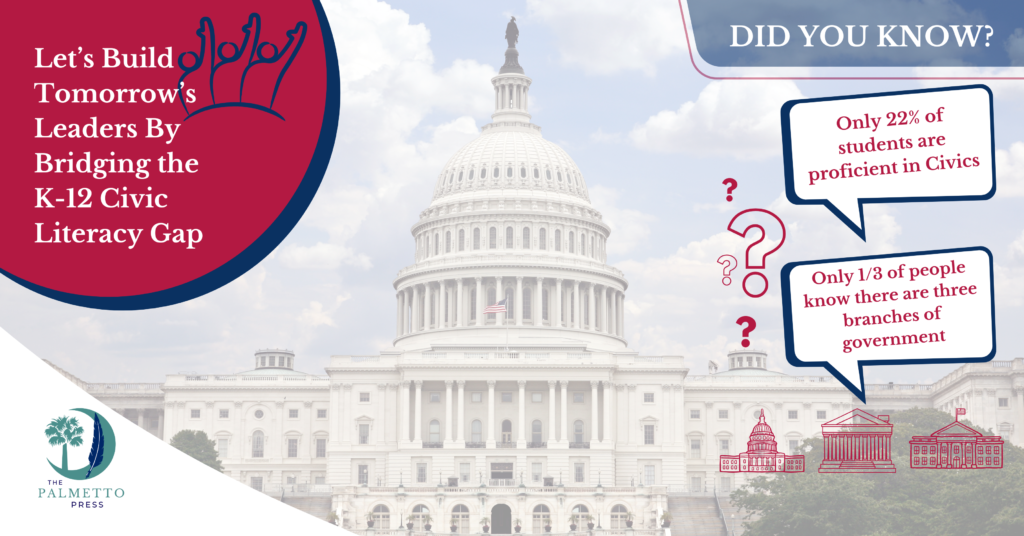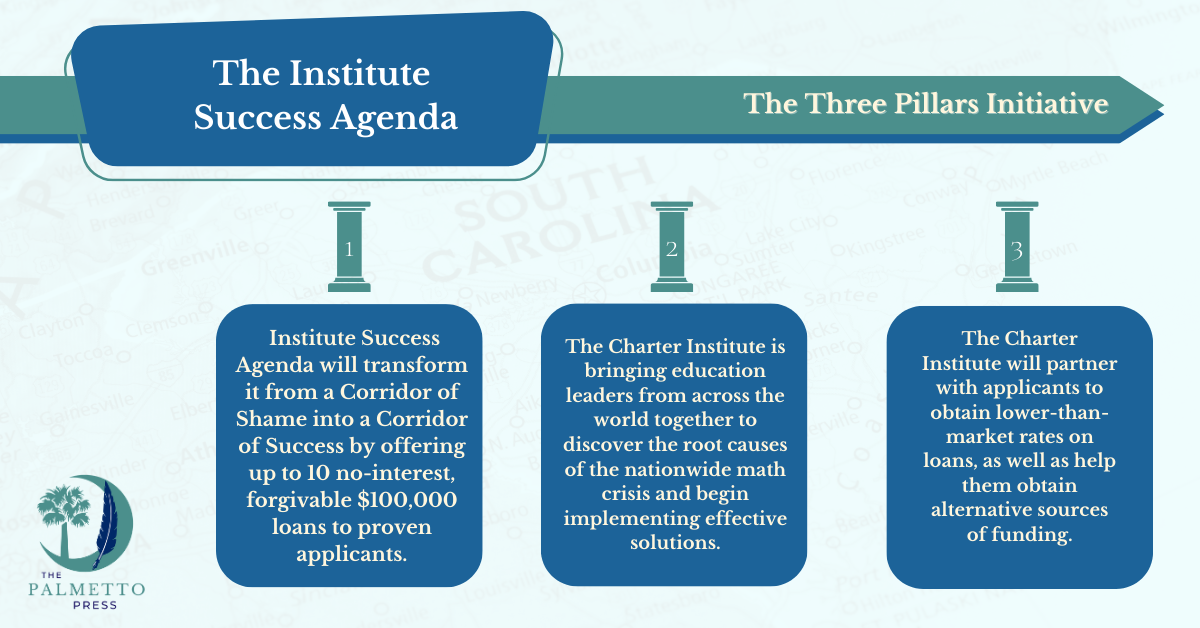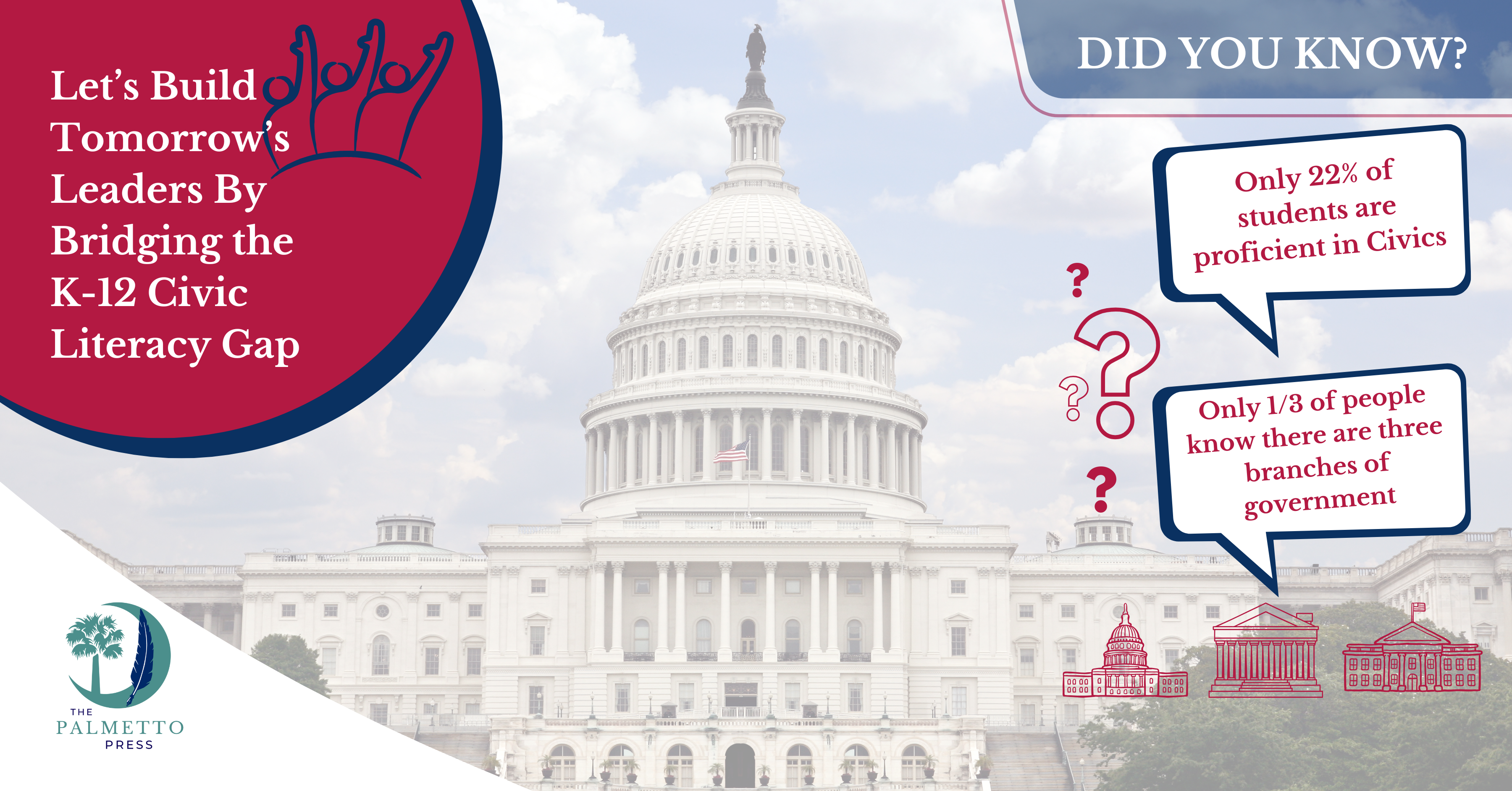
As the 2024 election draws to a close, K-12 civic education takes the spotlight, sparking debates about its role and importance in modern education. While some argue that standardized testing and STEM subjects should take precedence, others contend that civic literacy is fundamental to a functioning democracy. Historically, many leaders such as Thomas Jefferson, Horace Mann, and John F. Kennedy championed the role of public education in nurturing responsible civic participation. President Kennedy established the Peace Corps in 1961, a landmark program aimed at encouraging civic engagement on a global scale. They firmly believed that today’s students are leaders of tomorrow, and their participation in civic society is integral to the continuance of a prosperous democracy.
While every leader advocates for a strong foundation of civic education since childhood, the results from the 2022 National Assessment for Education Progress (NAEP) Civics Assessment reveal a bleak picture — Only 22 percent of students were found to be at or above a “proficient” level for civics comprehension and 31 percent of students were below the “basic” level. These scores are nearly similar to the 1998 civics assessment, displaying a staggering lack of growth over two decades.
The civic literacy crisis has even permeated students at the college level. According to the 3,000 undergraduate students interviewed by the American Council of Trustees and Alumni (ACTA) for “Losing America’s Memory 2.0” survey, almost three-fourths of students did not know who presides over the US Senate. Almost one-third of students wrongly identify that senators serve a four-year term when in actuality it is a six-year term, and 63 percent of students could not identify John Roberts as the Supreme Court Chief Justice. In the same survey, almost half of the students incorrectly identified Thomas Jefferson over James Madison as the Father of the Constitution.
Additionally, a 2023 survey by the Annenberg Public Policy Center reports that fewer than 40% of American adults can name all three branches of government, underscoring the need for foundational civic education in K-12 schools. The report of all the above results is a painful reminder about the importance of strong foundations in civics from a young age to avoid an education gap that extends into adulthood.
The decline in civic education can be attributed to a complex interplay of factors. A report by the Council of Chief State School Officers states that in the last two decades, 44% of school districts cut back social studies instructional time. This drastic shift in educational priorities toward STEM subjects relates to an increased prominence on standardized testing at the expense of social studies and civics. This focus reallocation has been compounded by widespread budget constraints, leading to reduced funding for civic education programs and teacher training in this crucial area. Furthermore, the politicization of the curriculum has presented its own set of challenges. Adding to these institutional challenges, the changing media landscape has significantly altered how young people consume information about civic affairs. The rise of social media and the decline of traditional news sources have created a new paradigm for civic engagement, and school systems are struggling to catch pace in this environment.
The world is perpetually evolving rapidly from various facets such as technology, globalization, geopolitics, and economy. At this juncture, civics education equips individuals with the knowledge, skills, and values needed to participate thoughtfully and effectively in public life. This includes understanding how government institutions operate, knowing the electoral and legislative processes, and recognizing the importance of civic engagement, like voting or community involvement. The purpose is to help individuals critically assess information, make informed decisions, and contribute positively to their communities and society.
The outcomes of civic education are beyond memorization of facts and have positive, tangible consequences, as evidenced by a strong correlation between increased civic knowledge and engagement in our democracy. Research from the Institute for Citizens & Scholars reveals that 66% of those who score high on civic knowledge intend to vote in the 2024 general election, versus only 44% of those who score low on civic knowledge. Individuals with higher civic readiness state that their vote matters and plan to engage in at least one civic activity.
Despite these promising statistics, the gap in civic knowledge remains a critical concern. Schools and policymakers need a reinvigorated approach to civic education that can change this trajectory by adopting innovative approaches beyond traditional teaching to truly engage students in civics. This might include hands-on activities like mock trials, student government participation, debates, and community service projects that offer students real-world experience in civic life. Additionally, technology can play a pivotal role, with digital tools and online simulations providing interactive learning opportunities that resonate with today’s students. The experiential learning process builds critical thinking, communication, and collaboration skills that prepare students to navigate and contribute to democratic life.
For instance, the “We the People” program by the Center for Civic Education has successfully displayed growth in students’ civic knowledge and engagement through simulated congressional hearings. A prime example of a technology-integrated curriculum is iCivics, founded by Justice Sandra Day O’Connor, an interactive digital platform and simulations that engage students in civic processes that have reached over 7.6 million students. Equally important is investment in teacher training, providing educators with the skills and resources necessary to teach civics effectively, complemented by a cross-curricular integration, to demonstrate its relevance across disciplines. Non-profit organizations like Generation Citizen partner with schools to provide action civics programs, paving the way for potential collaborations between educational institutions and community resources to enhance civic education and provide students with real-world civic engagement opportunities.
The civic education crisis necessitates collaboration among educators, students, and policymakers, each bringing unique perspectives to address the current gaps in civics education. Educators are at the forefront, emphasizing the need for more resources and professional development to effectively teach civics. Students have been vocal about their desire for more relevant and engaging civic education that addresses contemporary issues. Policymakers have begun to respond to these calls for change—According to CivxNow, as of August 2023, 40 states and the District of Columbia require a stand-alone high school civics course of which 34 states offer a half-year course and only six states offer a full-year course. CivxNow calls for a semester-long civics course in middle school which is currently offered in only five states; dedicated instructional time for civics in grades K–5 which is currently offered only in New Hampshire; and public funding for high-quality civics curriculum and materials, teacher training, and student programming. These legislative efforts reflect a growing recognition of the importance of civic literacy for the health of democracy.
Addressing the civic education gap is about preparing young people for future leadership roles by fortifying the democratic values that form the backbone of society. When students understand their rights, responsibilities, and the mechanisms that drive democratic governance, they become more active, informed citizens. Closing this gap will require a collaborative effort from educators, policymakers, and communities alike to ensure that every student graduates with a deep understanding of civic principles. As issues faced by societies become increasingly complex, robust civic education is more than just a curriculum requirement; it’s a crucial investment in a generation that will sustain and strengthen the future of democracy.





